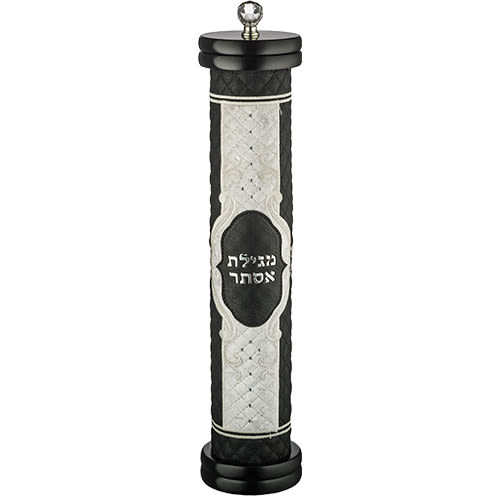
Tzav: All for the Boss
Rashi says that the Cohanim must be prodded to perform the type of sacrifices where they have no personal gain. How can he posssibly say such a thing?

“Hashem spoke to Moses, saying: ‘Command Aaron and his sons, saying, this is the law of the burnt-offering…”(Leviticus 6:2).
Rashi explains that Hashem’s intention in His use of the word “command” here is to prod Aaron and the Cohanim, for as Rebbe Shimon Bar Yochai says, they need prodding to do something whenever they don’t have any personal gain.
The lack of personal gain that Rebbe Shimon Bar Yochai is talking about here is the burnt-offering, the korban olah, the ritual sacrifice where the animal is burnt completely on the altar. As opposed to other types of ritual sacrifices, the Cohanim receive no portion of the meat and therefore derive no personal gain.
Most people understand pshat, the simple meaning of Rashi’s commentary in the name of Rebbe Shimon Bar Yochai, that the Cohanim, the priests of the Holy Temple, must be pushed to do tasks in the service of Hashem whenever they don’t receive gratuities. Can we believe for one moment that Rebbe Shimon Bar Yochai, with Rashi following in his footsteps, believe that the Cohanim are sluggish in fulfilling Hashem’s will if they don’t derive personal benefit? That would mean that they’d also need to be pushed to make the two most important sacrifices in the Holy Temple, the tamidim – the daily sacrifices of morning and afternoon that correspond to the prayers of Shacharit and Mincha – for they too are burnt offerings. How can anyone, much less Rashi and Rebbe Shimon Bar Yochai, be suspicious of Aaron and the Cohanim, that they need to be pushed whenever they don’t derive personal gain? That cannot possibly be the proper understanding of Rashi’s elaboration here.
True, Hashem told Moses to “command” Aaron. And true, Rebbe Shimon Bar Yochai says that wherever there’s a lack of personal gain, a person needs prodding. But, we must say that Hashem is especially prodding the Cohanim here, for they have no personal gain and therefore no one can accuse them of ulterior motives. Hashem is in effect telling the Cohanim to grab this type of mitzva, because it’s “all for the Boss”, and therefore no one – whether human or accusing angel – can have any complaint that they’re doing the mitzva because of vested interests or ulterior motives. Such mitzvot as the burnt offerings provide an ideal opportunity for the Cohanim to do a mitzva that is entirely for the sake of Heaven, leshem shamayim.
The burnt offering, korban olah, is literally translated the “ascent offering”. This is the type of mitzva that ascends in its entirety. With this in mind, we can better understand Rashi’s commentary in the name of Rebbe Shimon Bar Yochai: a person should be encouraged, literally prodded, to do a mitzva where he or she has no personal gain, for such a mitzva ascends in its entirety. In that it is totally for the sake of Heaven, this type of mitzva is a priceless gem that anyone should grab.
Western society has conditioned people into asking themselves before doing almost anything, “What’s in it for me?” A mitzva done with such an intent is not worth much. People often do magnificent mitzvot, such as donating a million dollars to build the new mikva or the wing of a yeshiva, yet they’re honored at the testimonial dinners, written up in the local newspapers, and their names are engraved on giant plaques for everyone to see. There’s a big difference between the mitzvah done in public and the mitzvah done behind closed doors without all the public fanfare and prestige.
My beloved rabbi and spiritual guide Rav Shalom Arush shlit’a always says that if you want to know who a person really is, see how they treat their spouse and children. See how they act at home behind closed doors. In that respect, the many mitzvot that a person does at home for spouse and children are equivalent to a burnt-offering, a korban olah in the Holy Temple, for they’re far from the public eye and usually done with no expectation of personal gain. Hashem derives phenomenal gratification from such mitzvot.
Yet, in a place where there’s seemingly no personal gain, there’s the greatest benefit of all. Whenever we do something for Hashem, we benefit by getting closer to Hashem. Nothing in the world is better! For that reason, it’s a good idea to prod ourselves to do the special mitzvot anywhere that we’re not seeking our own personal gain, for these are the mitzvot that are worth the most.












3/10/2014
Thank you!
3/10/2014